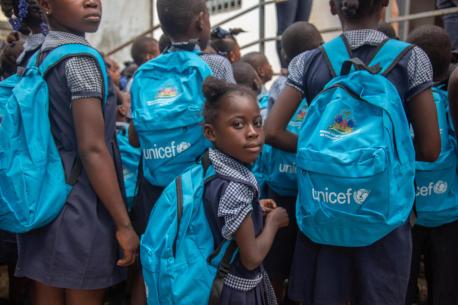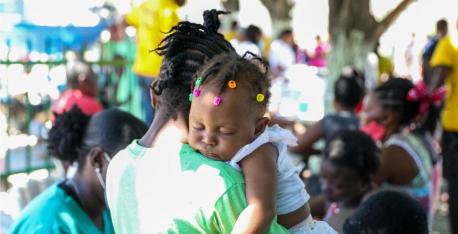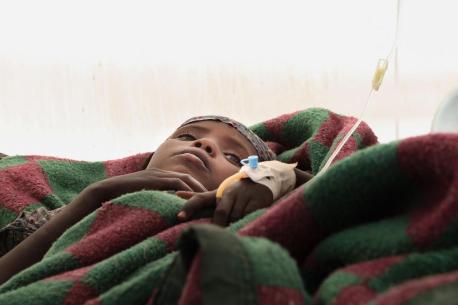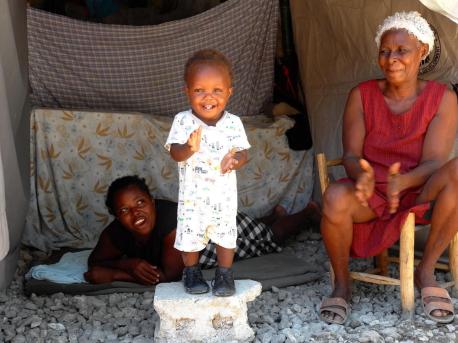
Haiti's Winning the Fight Against Cholera
Water, sanitation and hygiene initiatives implemented to fight cholera in Haiti are working: No new cases have been reported in three years.
After a major earthquake rocked southwestern Haiti on Aug. 14, 2021, damaging water infrastructure and destroying 130,000 homes, public health officials warned that conditions were ripe for a ferocious cholera outbreak.
In Haiti, where 3.3 million people lack access to safe water, the threat of cholera looms large. Communities without reliable water and sanitation facilities are most at risk from the waterborne illness, which is spread by eating food or drinking water contaminated by the feces of an infected person. The cholera bacteria, Vibrio cholerae, causes acute watery diarrhea that can kill within hours if left untreated. Children are particularly vulnerable.
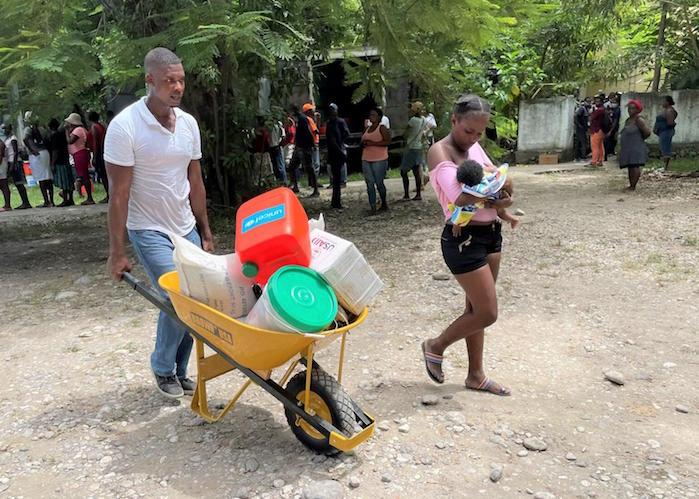
After a magnitude 7.2 earthquake hit southwest Haiti in August 2021, damaging homes and infrastructure, UNICEF provided families with emergency water, sanitation and hygiene (WASH) kits and trucked in safe water to prevent the spread of waterborne diseases. © UNICEF/UN0511635/Crickx
Haiti's last confirmed cholera case was in February 2019
Haiti's earthquake left even more people without water or sanitation, upping the odds that cholera would make a return. But in the months since the earthquake, not a single cholera case has been reported, in large part due to a years-long concerted effort to curb transmission and address the root causes of the disease through rapid response activities and coordinated water, sanitation and hygiene (WASH) programs.
The work has been so successful that it has been three years since Haiti's last confirmed cholera case — a significant achievement for a country that saw 813,252 suspected cases and 9,611 deaths between 2010 and Feb. 4, 2019.
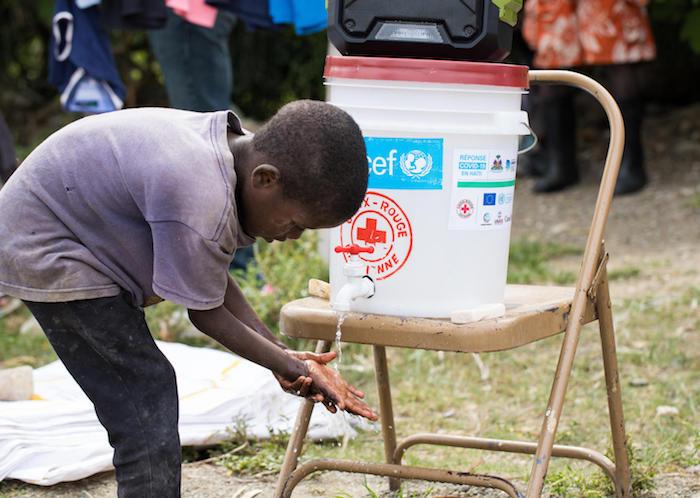
A boy washes his hands at a handwashing station set up at the market in Tiburon, Haiti in May 2020 to prevent the spread of COVID-19. Many of the lessons learned in the fight against cholera are now being applied to the COVID-19 pandemic. © UNICEF/UNI339775/Fils Guillaume
WASH programs save lives
In the days, weeks and months after the quake, UNICEF provided urgent assistance to keep families safe from cholera and other waterborne diseases, trucking in emergency water supply, distributing hygiene kits and repairing damaged infrastructure.
This was on top of UNICEF's ongoing work with Haiti's government and other partners to share lifesaving cholera prevention information with vulnerable communities, including the importance of handwashing, drinking only treated water and defecating in latrines.
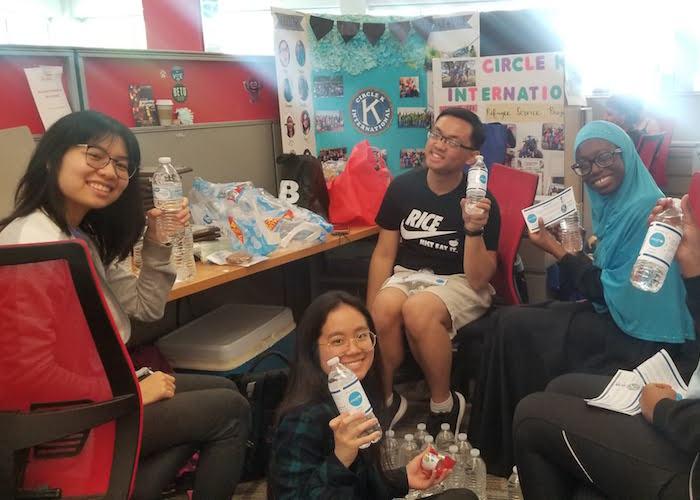
In 2019, members of the University of Houston's Circle K International Club held a bake sale to raise money for WASH (water, sanitation and hygiene) programs in Haiti. © Circle K International
Circle K International supports key WASH interventions in Haiti
For the past five years, Circle K International, the collegiate branch of Kiwanis International, has been supporting key WASH interventions to protect children in Haiti, including emergency water access, and raising awareness and funding for essential hygiene supplies. Since 2017, Circle K members have raised almost $240,000 for WASH programs in Haiti.
Keeping Haiti's children safe from cholera will require sustained improvements to the country's water and sanitation systems and infrastructure and equitable access to safe water and sanitation for all. In 2022, UNICEF plans to reach 604,915 people in Haiti with safe water and critical WASH supplies.
Support UNICEF's lifesaving work for children. Your contribution can make a difference. Donate now.
Top photo: A child plays a hand-clapping game at a center for children supported by UNICEF and IDEJEN in Les Cayes, Haiti not long after the Aug. 14, 2021 earthquake. © UNICEF/UN0519249/Ergen
